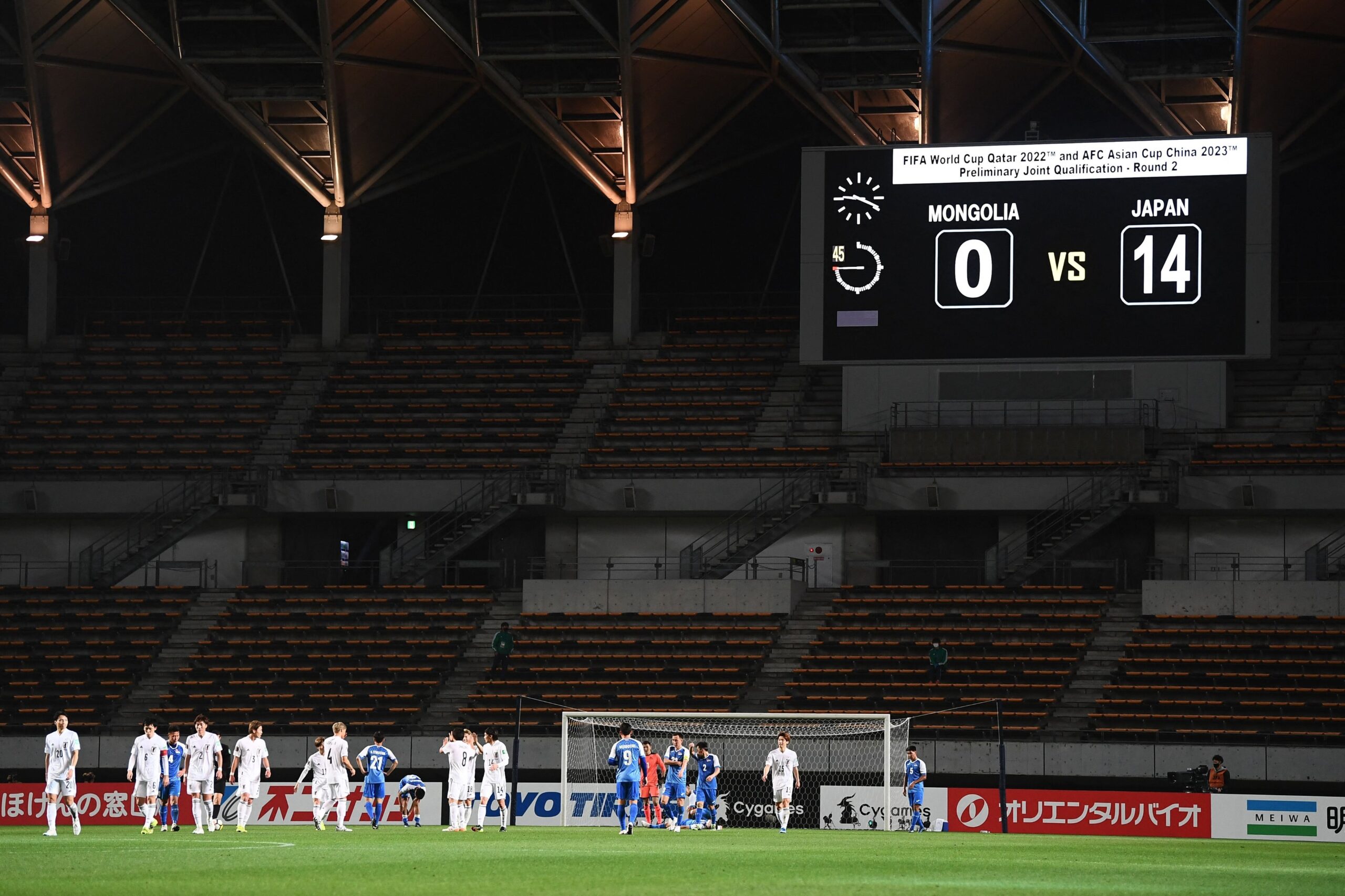The anticipation for the 2026 FIFA World Cup is reaching new heights as the groundbreaking decision to have multiple host nations is set to redefine the tournament’s dynamics. The concept of co-hosting the prestigious event is not new, but the 2026 edition takes it to a whole new level. With more teams, matches, and fans expected, the partnership between the United States, Canada, and Mexico as co-hosts promises a truly unforgettable experience for soccer enthusiasts worldwide.
This collaborative effort will not only showcase the rich soccer culture of each country but also promote unity and diversity through the universal language of football. The 2026 FIFA World Cup co-host is not just a game-changer; it’s a historic moment that will shape the future of this globally cherished event.
Introduction to the 2026 FIFA World Cup Co-Host Concept
The 2026 FIFA World Cup is set to make history by introducing the co-host concept, where three nations – Canada, Mexico, and the United States – will join forces to host the prestigious tournament. This innovative collaboration marks a significant shift in the traditional hosting model, showcasing unity and cooperation among nations in the realm of sports.
The Benefits of Co-Hosting
**Co-hosting the FIFA World Cup**, especially on such a scale, offers a myriad of benefits. From **reduced financial burden** on a single host nation to **enhanced international relations** and **cultural exchange**, the advantages are vast. It allows multiple countries to **share the responsibilities** and **celebrate the tournament** together.
Logistics and Planning
Organizing a tournament of this magnitude requires meticulous planning and coordination among the co-hosts. With **venues spread across different countries**, logistics such as **transportation**, **security**, and **accommodations** will need to be seamlessly integrated to ensure a smooth and successful event. **Collaboration** between the hosting nations will be key to overcoming logistical challenges.

History and significance of Joint Hosting in FIFA World Cup
Joint hosting of the FIFA World Cup has a rich history dating back to the inaugural tournament in 1930. Over the years, several editions of the World Cup have been co-hosted, with the most recent one being in 2002 when South Korea and Japan shared the hosting responsibilities. The decision to have multiple host countries is often influenced by the need to promote the game in different regions and unite nations through the love of soccer.
Increased Global Reach and Fan Engagement
Co-hosting allows the World Cup to reach a wider audience and engage fans from diverse backgrounds. It promotes cultural exchange and fosters unity among nations, showcasing the power of sports to transcend boundaries and bring people together world cup co-host.
Infrastructure and Economic Benefits
Sharing the hosting duties can ease the financial burden on a single nation and lead to better infrastructure development. Countries can collaborate to upgrade stadiums, transportation networks, and tourism facilities, leaving a lasting legacy that benefits the host nations beyond the tournament 2026 World Cup Co-Host.
- Enhanced Stadium Facilities
- Improved Transportation Systems
- Boost in Tourism and Hospitality Sector

Selection process and criteria for 2026 FIFA World Cup Co-Hosts
One of the most significant decisions in the sporting world is the selection of co-hosts for the 2026 FIFA World Cup. The process involves meticulous planning and evaluation to ensure a successful collaboration between multiple countries. The FIFA Council plays a crucial role in determining the host nations based on various criteria.
Evaluation Criteria
The selection criteria for the 2026 FIFA World Cup co-hosts include factors such as infrastructure readiness, stadiums, transportation, accommodation facilities, and overall commitment to hosting a world-class sporting event. Each potential host must demonstrate their capability to meet FIFA’s requirements and provide an exceptional experience for players and fans alike.
Furthermore, sustainability initiatives, legacy programs, and the potential for long-term benefits to the host countries are also considered during the evaluation process to ensure a lasting impact beyond the tournament.
Transparency and Fairness
FIFA emphasizes transparency and fairness throughout the selection process, aiming to uphold the integrity of the world’s most-watched sporting event. All candidate nations undergo thorough assessments and site visits by FIFA officials to ensure compliance with the organization’s standards and regulations.
Engagement with local communities, government support, and the ability to deliver a memorable and inclusive event are essential elements that contribute to the final decision-making on the co-host selection.
Challenges and benefits of Co-Hosting the FIFA World Cup
Co-hosting the FIFA World Cup can present both challenges and benefits for the countries involved. While sharing the responsibility can help distribute costs and infrastructure requirements, it also brings about logistical complexities and coordination issues.
Logistical Challenges
Coordinating matches, transportation, accommodations, and security measures across multiple countries can be a daunting task, leading to potential delays and communication gaps.
Managing diverse regulations and cultural differences between co-hosts may require extensive planning and cooperation to ensure a smooth tournament.
Financial Benefits
The financial burden of hosting a FIFA World Cup can be shared among co-hosts, making it more feasible for countries with limited resources to participate in hosting the event.
This collaboration can also result in a broader economic impact as the tournament attracts more tourists, boosts local businesses, and enhances global visibility for all participating nations.

Impact on infrastructure and economy of Co-Host countries
Hosting the 2026 FIFA World Cup jointly will have significant impacts on the infrastructure and economy of the Co-Host countries involved. The influx of tourists, teams, and media personnel will require substantial upgrades to transportation, accommodation, and stadium facilities.
Enhanced Infrastructure
The hosting nations will invest heavily in upgrading transportation networks, including airports, roads, and public transit systems to ensure smooth movement during the tournament. Stadiums will undergo renovations or new constructions to meet FIFA standards, leaving a lasting legacy for future sporting events. This infrastructure development will boost connectivity and accessibility.
Economic Stimulus
The 2026 FIFA World Cup will lead to a surge in tourism, driving revenue for hotels, restaurants, and local businesses. The increase in visitors will create job opportunities and stimulate economic growth in sectors such as hospitality, retail, and entertainment. This economic boost is expected to have a long-term positive effect.
- Economic Growth: The influx of tourists and related activities will contribute to the GDP of the Co-Host countries.
- Infrastructure Investment: The development of infrastructure for the event will create jobs and improve the overall quality of life for residents.
- Business Opportunities: Local businesses will have the chance to cater to a global audience, potentially leading to expanded markets and increased revenues.
Fans and Players Experience in a Co-Hosted FIFA World Cup
Hosting the 2026 FIFA World Cup jointly by multiple countries promises an exhilarating experience for both fans and players. With matches held across various nations, 2026 FIFA World Cup Co-Host ensures a diverse and inclusive environment for fans worldwide to come together and celebrate the spirit of football.
Enhanced Fan Engagement
Fans have the opportunity to travel and experience the tournament in different countries, soaking in various cultures and traditions. This global celebration fosters camaraderie among supporters and creates lasting memories of unity and sportsmanship. 2026 co-hosted FIFA World Cup enables fans to witness matches in diverse stadiums, adding excitement to their overall experience.
Unique Player Perspectives
For players, competing in a co-hosted World Cup offers a unique and enriching experience. They get to play in distinct environments, adapting to varying climates and playing conditions. This diversity challenges their skills and abilities, making the tournament more competitive and thrilling. Playing on different grounds and in front of diverse audiences elevates the overall gameplay and adds layers to the sporting spectacle.
Frequently Asked Questions
-
- Which countries are set to co-host the 2026 FIFA World Cup?
- The 2026 FIFA World Cup will be co-hosted by United States, Canada, and Mexico.
-
- Why is the collaboration for hosting the 2026 FIFA World Cup considered game-changing?
- The collaboration among three countries for hosting the 2026 FIFA World Cup is considered game-changing because it will be the first World Cup to be co-hosted by multiple nations since the 2002 World Cup hosted by South Korea and Japan. This will promote unity and cooperation among the countries involved while showcasing the spirit of international collaboration on a global stage.
-
- Will the co-hosting of the 2026 FIFA World Cup have any impact on the tournament format?
- Yes, the co-hosting of the 2026 FIFA World Cup will impact the tournament format by expanding the number of participating teams from 32 to 48. This change will allow for a more inclusive World Cup with more opportunities for teams from different regions to qualify and compete in the tournament.
-
- How will the co-hosting of the 2026 FIFA World Cup benefit the hosting countries?
- The co-hosting of the 2026 FIFA World Cup will benefit the hosting countries by boosting tourism, infrastructure development, and international visibility. It will also promote soccer culture in the region and leave a lasting legacy in terms of sports facilities and economic growth.
Empowering Global Unity: A Win-Win for the 2026 FIFA World Cup Co-Host
In conclusion, the decision to have a joint hosting for the 2026 FIFA World Cup marks a historic game-changer in the world of sports. This unprecedented collaboration between the United States, Canada, and Mexico showcases the power of unity and inclusivity on a global scale. Not only does it provide an opportunity for these nations to come together and celebrate the beautiful game, but it also sets a new standard for future sporting events.
The shared responsibility of hosting the World Cup highlights the significance of teamwork, diversity, and friendship in overcoming boundaries and creating unforgettable memories. As we eagerly await the kickoff of this monumental event, let us embrace the spirit of togetherness and sportsmanship that the 2026 FIFA World Cup co-host represents.

